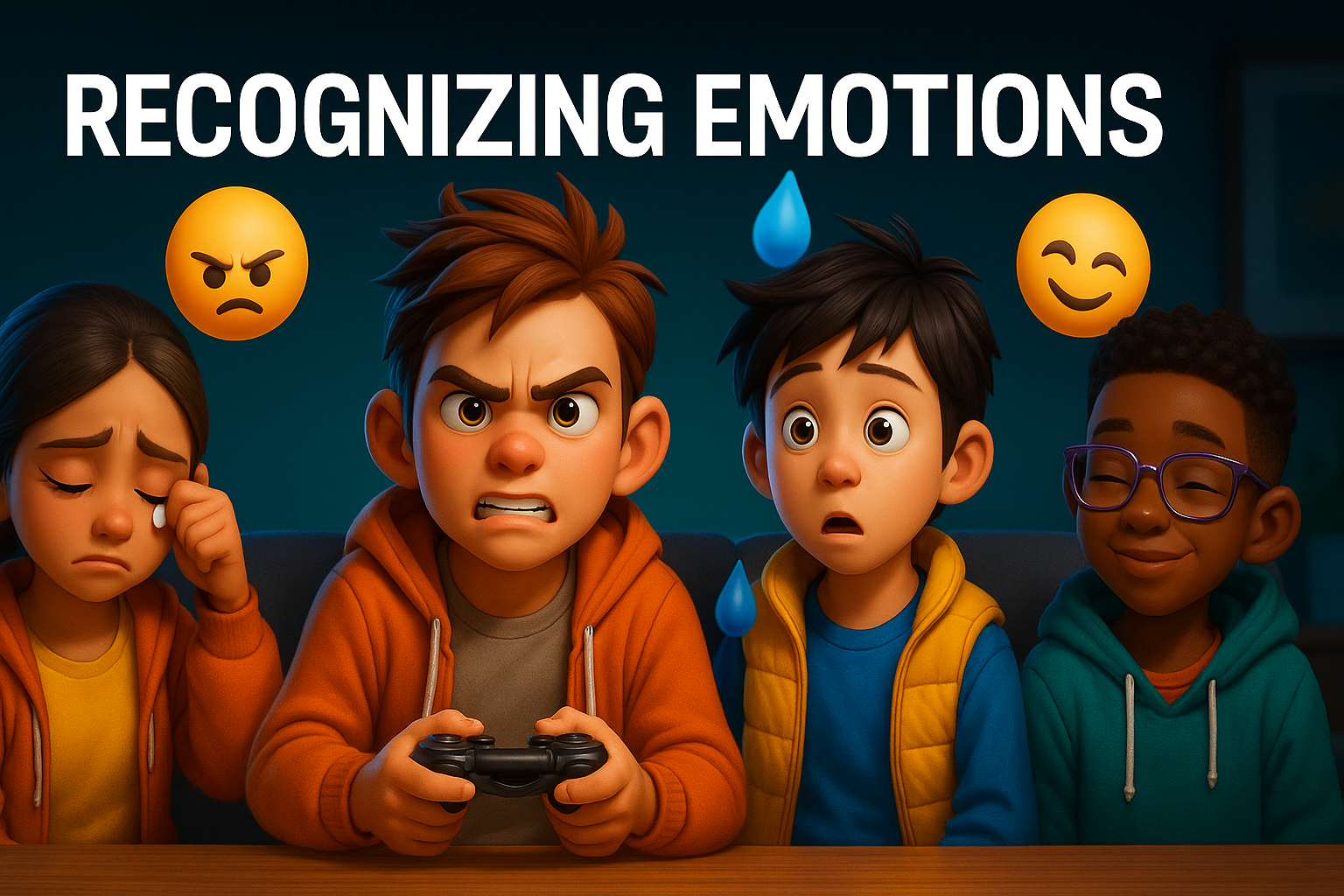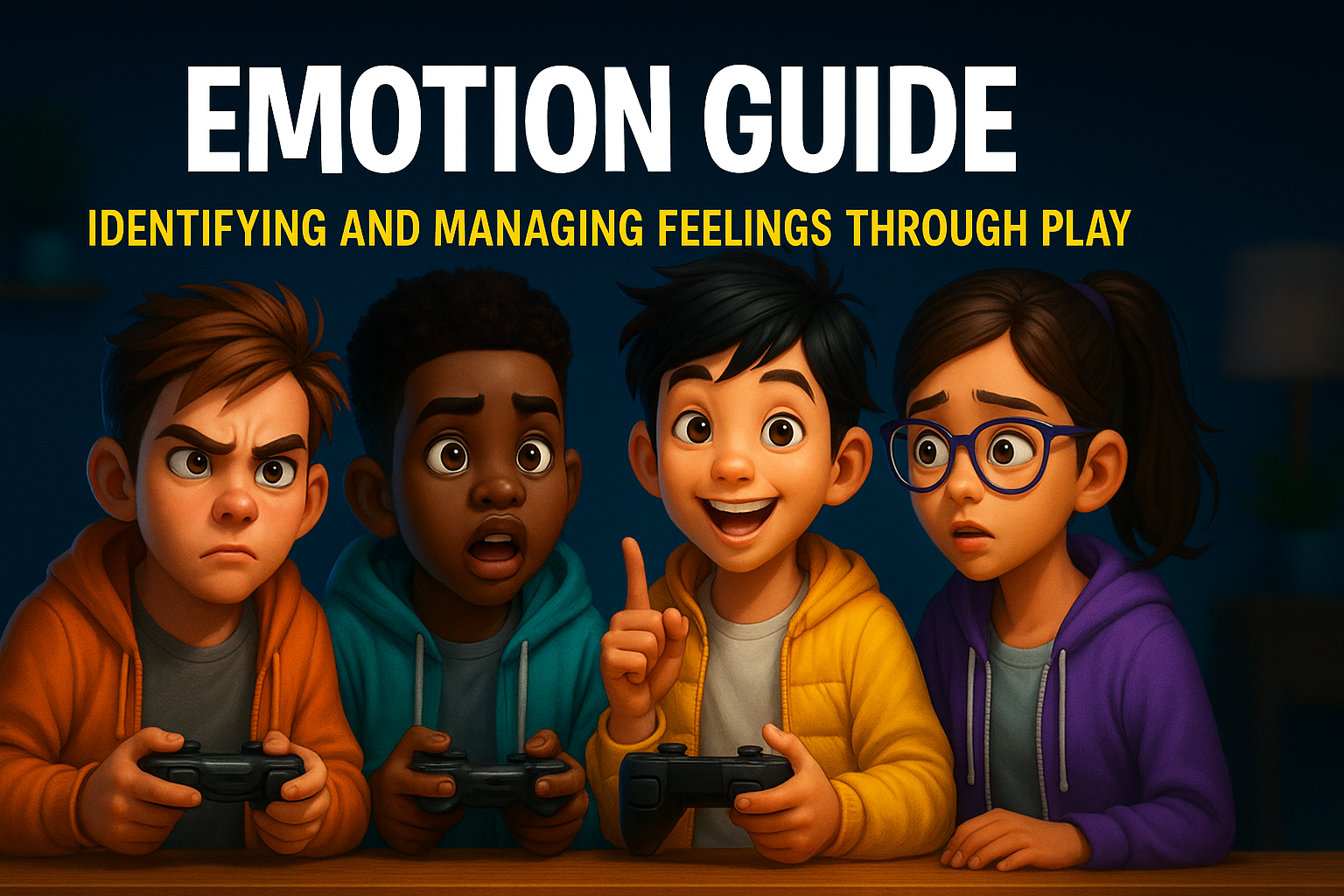April 23, 2025
Emotion Guide – Identifying and Managing Feelings Through Play
Video games can also serve as a fun emotional classroom, helping kids learn to recognize and regulate feelings – a key part of SEL and emotional intelligence. In games, children experience excitement, surprise, frustration, and even empathy for characters, all in a low-stakes environment. Experts are finding that these virtual experiences can improve a child’s real-world emotional skills. Harvard researchers and others have noted that the empathy and emotion-regulation practiced in games are “predictors of emotional well-being” later in life.
(greatergood.berkeley.edu) In short, playtime can double as emotion coaching.
Recognizing Emotions
Video games often provide clear examples of emotions that kids can observe and interpret. Story-driven and role-playing games, for instance, present characters with faces showing sadness, anger, joy, or fear. One notable study designed a game specifically to teach empathy – players had to identify the emotions of alien characters by their expressions.
(greatergood.berkeley.edu) The result? After just two weeks, kids who played this empathy-training game became more accurate at reading others’ emotions, and brain scans showed stronger connectivity in areas linked to empathy and emotion processing. (greatergood.berkeley.edu) This kind of research underscores how games can help children practice tuning in to facial expressions and tone of voice, skills that improve their emotional awareness. Even in everyday games, kids learn to read a teammate’s excitement or an opponent’s frustration, getting better at noticing how others feel in real time.

Perspective-Taking & Empathy
Some gaming experiences actively foster empathy. For example, Harvard researchers found that a virtual role-play game improved kids’ ability to recognize others’ feelings and even strengthened brain networks for empathy (greatergood.berkeley.edu). As Dr. Richard Davidson explains, empathy is a first step toward prosocial behavior – if kids can empathize with others’ problems, they’ll be more motivated to help
(greatergood.berkeley.edu). Even major youth organizations are promoting this empathetic play: Harvard’s Making Caring Common project partnered with Cartoon Network on a “Play Positive” campaign that gives kids tips to prevent bullying and encourage kindness while gaming (mcc.gse.harvard.edu). By walking in another’s shoes – whether an alien in a story-driven game or a friend on the team – children practice caring and compassion. Shared gaming experiences can even make young people “more inclined to help one another, in both online and real-world settings.” (mainleaf.com)

Emotion Regulation
Gaming also gives kids a safe space to experience big emotions and practice calming themselves. It’s common for a player to feel frustrated by a difficult level or thrilled by a victory. In learning to handle these swings, children exercise their emotion-regulation muscles. They might take deep breaths to steady their nerves during a racing game or learn not to “rage quit” when something goes wrong. In fact, researchers have observed that some games inherently encourage this: one study noted that only the children who showed improved ability to regulate their emotions during an empathy game saw gains in empathy itself (greatergood.berkeley.edu)
– highlighting how closely linked managing your own feelings is to understanding others’. Parents can take heart that when a game prompts your child to calm down and try again, it’s teaching a valuable lesson. Over time, gamers become more adept at handling frustration and staying focused under stress. These self-regulation skills carry over to the real world – a child who has learned to cool down after an intense Fortnite match is better equipped to cope with anger or disappointment at home and school. Through gameplay, kids practice the art of keeping their emotions in check, an essential component of emotional intelligence.

